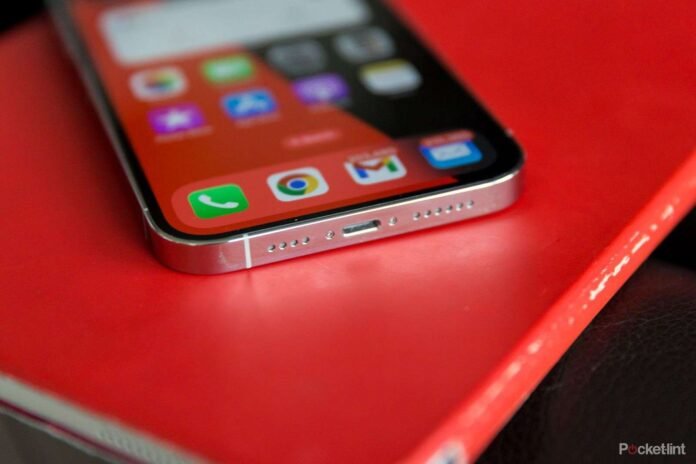It’s almost impossible to avoid the fact that Apple is very much expected to announce the iPhone 15 and iPhone 15 Pro lineups within a matter of weeks. And more information is starting to leak out as we edge ever closer to the big day. The latest leak suggests that iPhone buyers can expect to benefit from faster charging capabilities. But there are still questions to be asked.
Those questions surround exactly which iPhones will benefit from the faster charging speeds – if any, of course – as well as whether the increased speeds are fast enough given some of the numbers posted by flagship phones from the competition.
The latest report comes from 9to5Mac which cites unnamed people familiar with the matter when it claims that the iPhone 15 models are going to support fast charging of up to 35W.
To put that into perspective, the iPhone 14 models currently top out at 20W while the iPhone 14 Pro models reach a maximum of 27W. Apple doesn’t explicitly say any of this of course, but that’s what testing following those devices’ launch last year showed.
With that all in mind, it isn’t clear whether this new 35W limit will apply to only the iPhone 15 Pro and iPhone 15 Pro or if both iPhone 15 models will also get in on the act. Remember, all of the 2023 iPhones are expected to switch from Lightning to USB-C for the first time so it’s possible these improved speeds could come to all models.
As for 9to5Mac, it doesn’t say which devices will benefit. “Industry sources told 9to5Mac that at least some of the new iPhone 15 models can be recharged with up to 35W, which should enable even faster charging speeds on the new phones,” the report says.
While 35W is undoubtedly an improvement for iPhone owners, it’s far from the fastest around. Some Android phones can charge considerably faster – Oppo was charging phones at up to 240W last year, while Xiaomi’s 300W charging capabilities are unreal. With those figures considered, there’s a school of thought that Apple’s chargers are far too slow even at 35W.
However, Apple’s approach to fast charging appears to be a conservative one for a reason. The controversy-averse company is unlikely to want to tempt fate, avoiding drama like the one that saw Samsung cancel the Galaxy Note 7 following a spate of battery explosions.
It’s difficult to argue with a stance that could prevent fires in people’s homes, of course. But the likes of Xiaomi and Oppo seem confident in their battery technology. Should Apple be equally sure of its own capabilities?
Ultimately, it’s unlikely anyone is going to switch from an iPhone to an Android phone for faster charging speeds alone. And perhaps Apple knows it.
Post Disclaimer
The information provided in our posts or blogs are for educational and informative purposes only. We do not guarantee the accuracy, completeness or suitability of the information. We do not provide financial or investment advice. Readers should always seek professional advice before making any financial or investment decisions based on the information provided in our content. We will not be held responsible for any losses, damages or consequences that may arise from relying on the information provided in our content.



